My name is Hayat Al-Sharif and this is my story as a female photojournalist in Yemen
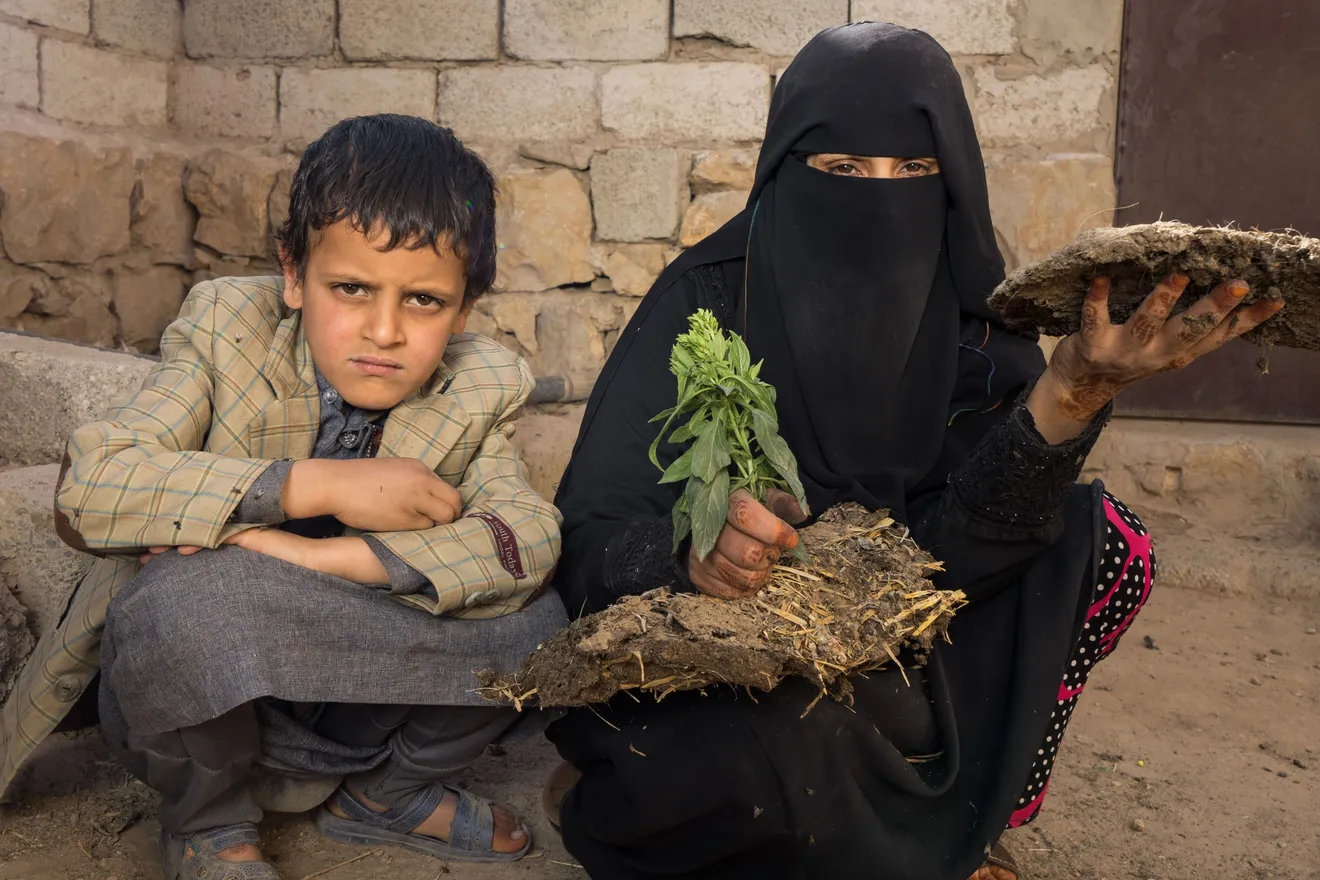
From the series “The Impossible Fire”: Molok, 39, and her son.
©Hayat Al-Sharif
I grew up in a journalistic environment. My brother and sister are both photographers and my husband is a journalist. I am very passionate about photography. I loved and used to photograph Yemeni heritage, ancient buildings, customs and traditions in cooperation with international organisations. I have a large collection of pictures that talk about Yemen and its culture. Unfortunately, the war forced me to move from taking pictures of civilisation and culture to photographing the suffering caused by the war on people in Yemen, so that many journalists and photographer friends started calling me a photographer of suffering.
Creator
Hayat Al-Sharif
Location
Yemen
Date
April 1, 2022
The real war is the one of a woman who fights for food daily to keep her children alive.
Hayat Al-Sharif, Yemen
“Flowers in war”: War in Yemen forces girls to search for ways to make a living and open doors for hope and peace.
© Hayat Al-Sharif
The resilience of women in Yemen
Children and women are the most exposed to this suffering. Children and women of Yemen belong to peace and not to war. The local, Arab and international media are talking about the war in which weapons are used, but no one has talked about the suffering of women and children because of this war. What most people don’t know; the real war is the one of a woman who fights for food daily to keep her children alive. Seven years since the beginning of the war, and every day I photograph the humanitarian cases in Yemen. My projects will not end the suffering unless the war stops.
I have documented many women suffering from the difficulty of living in a besieged country lacking most necessities of life. The lack of domestic gas, for example, made Yemeni women enter this war and look for other ways to light a fire.
The Impossible Fire
I found women have been very creative in creating ways to survive. They burn their children's clothes to light a fire, girls burn their textbooks, and children search in the rubbish for plastic cans to light this impossible fire.
I am one of those women who find it hard to live. Therefore, two years ago I decided to start a project that consists of illustrated stories showing how Yemeni women suffer under these difficult conditions. I called the project “The Impossible Fire”, through which I try to convey the message of women and children to the international community by publishing it in various media outlets.
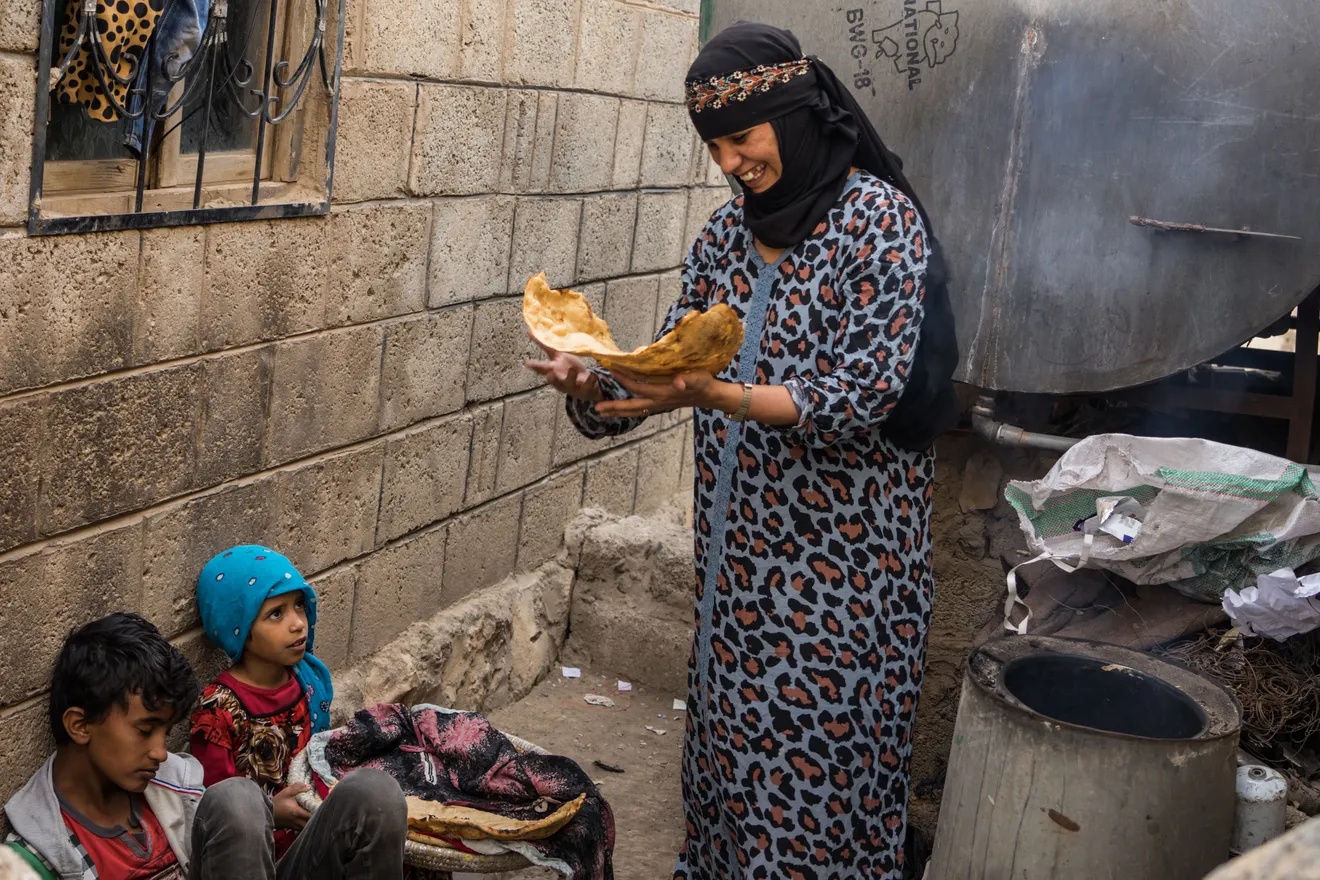
From the series “The Impossible Fire”: Afrah, 35, after five years of war in Yemen.
©Hayat Al-Sharif
The required funding
These days it has been difficult to finance the project due to the deteriorating economic situation. I applied for a grant to complete the “Impossible Fire” project. The Prince Claus Fund for Culture and Development approved the grant to complete my project, which will now help me move to different regions of Yemen to portray the suffering of women. I will for example travel to Al Mahwit, Hajjah and other areas where women day after day go to search for firewood. These areas are located in high and dangerous mountains where there have been accidents of women falling, receiving serious injuries and some of them even dying. In addition, they are constantly exposed to the toxic smoke that is emitted from burning plastic cans.
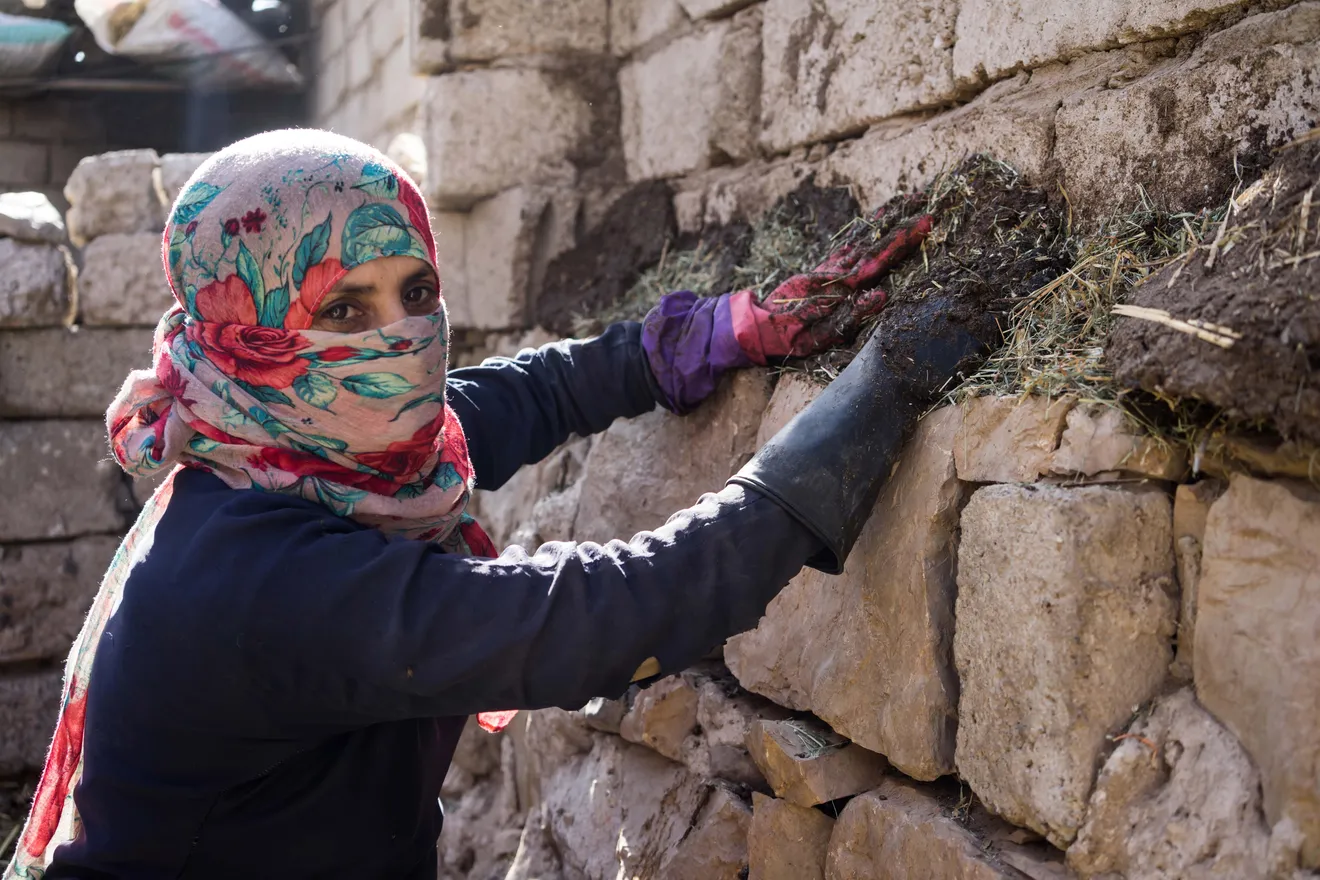
From the series “The Impossible Fire”: Molok, 39, in the north of Sana’a.
©Hayat Al-Sharif
The hurdles as a female photographer in Yemen
In a society like Yemen, there are customs and traditions that consider women's work shameful. I, as a female photographer in Yemen, face a lot of harassment because of carrying a camera and working as a photographer. Also, Yemeni women fear being photographed, and those who take a photo of them will be punished by their husbands or one of their relatives. This is why many Yemeni women prefer to continue suffering silently.
The war divided Yemen into different parts, and each part is controlled by an armed group. This division has made it more difficult and dangerous to move around for filming. I get a lot of pressure at the checkpoints that spread everywhere I go. I was also subjected to a lot of harassment, violations and attacks by the militants. Yemen has become an unsafe environment for photographers because we are at risk of death at any given moment.
Yemen is considered one of the major countries in violating the freedoms of the press and publication. I myself would have numerous painful stories to tell, but I cannot talk about them because of the lack of safety in my country.
I have a message from the women and children of Yemen that I must deliver to the world in order to stop this suffering.
Hayat Al-Sharif, Yemen
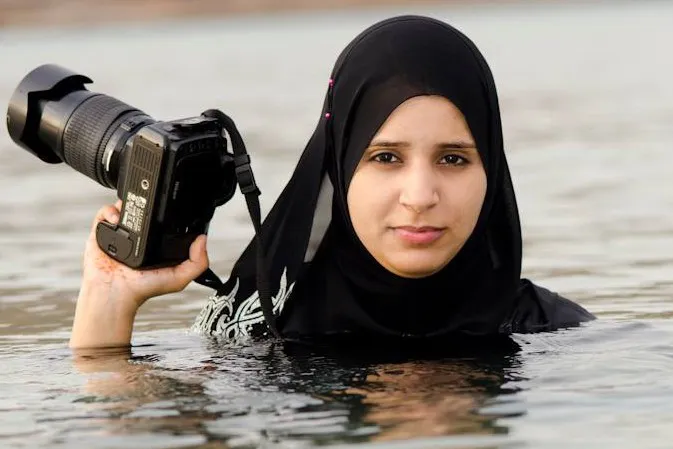
Portrait of Hayat Al-Sharif, ©Amira Al-Sharif
My contribution through photography
In the end, I have a message from the women and children of Yemen that I must deliver to the world in order to stop this suffering. I will continue filming my project until I complete it, and I will make sure to publish the project in cooperation with the Prince Claus Fund for Culture and Development to bring it to light. I want the children and women of Yemen to live in peace like they deserve to.
Case studies
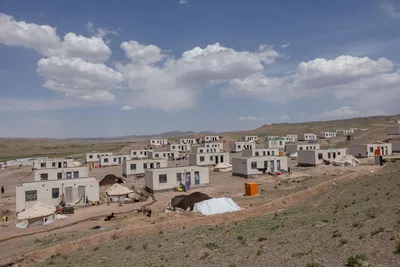
September 2024 - Cordaid
Covering the earthquake response in Afghanistan
Photos and interviews with humanitarians and people affected by the earthquake in Herat, Afghanistan
Learn more about Covering the earthquake response in Afghanistan
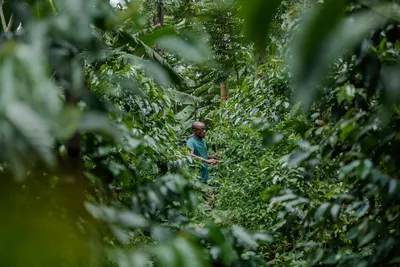
June 2024 - Naturland
Visual promotion material for agroforestry systems
Video and photos on the promotion of agroforestry practices in organic coffee farming in East Africa.
Learn more about Visual promotion material for agroforestry systems
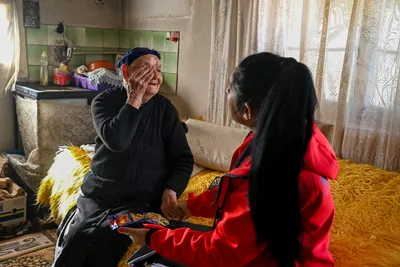
June 2024 - Connexio develop
Leave no one behind – photo and video for ethical fundraising
Multimedia package for fundraising purposes taken in Strumica in North Macedonia
Learn more about Leave no one behind – photo and video for ethical fundraising